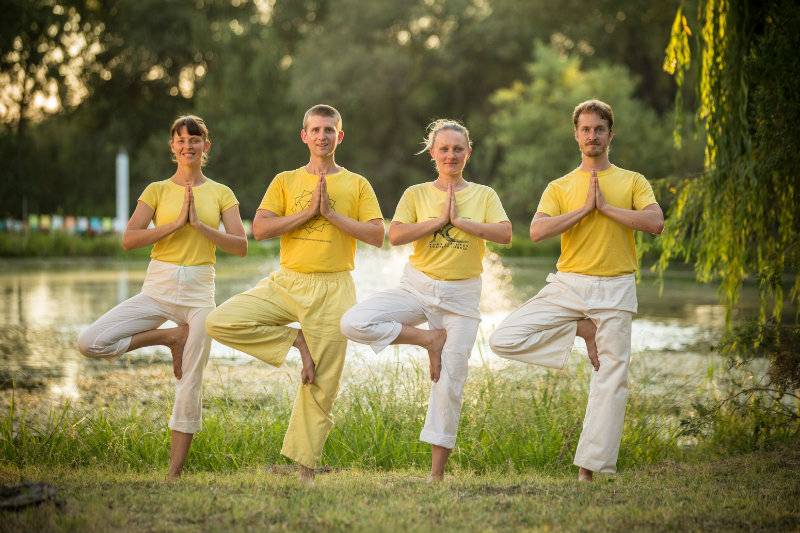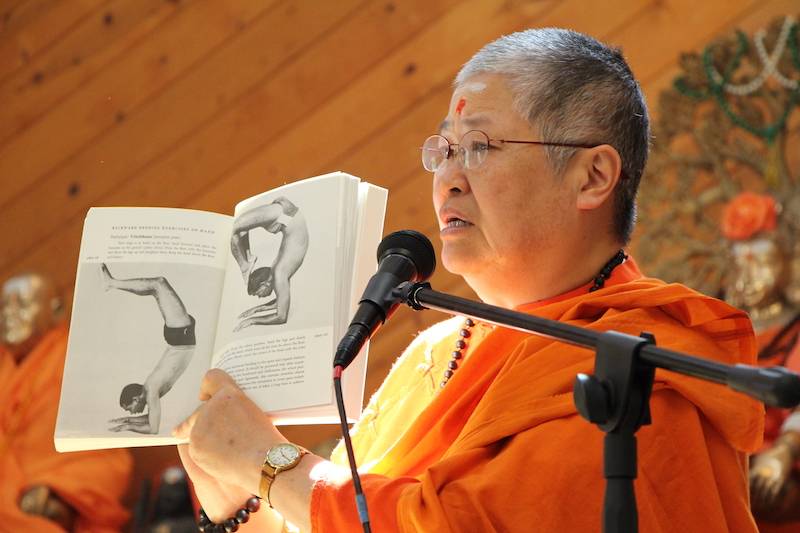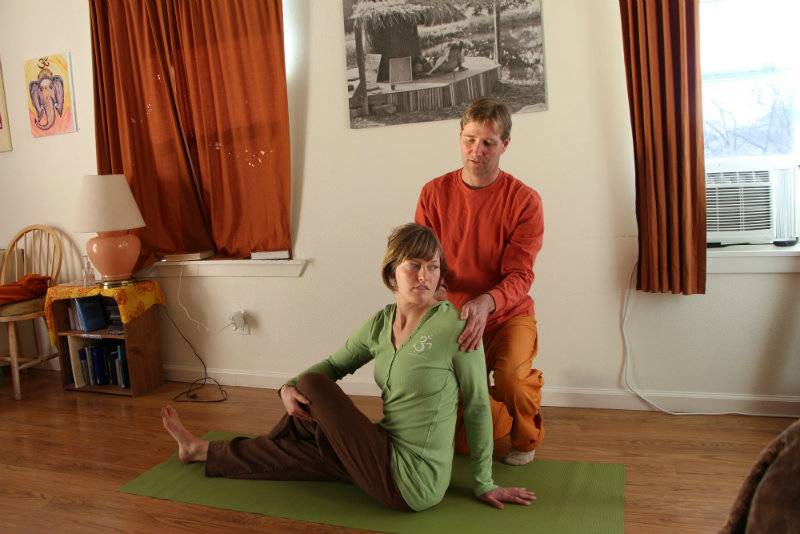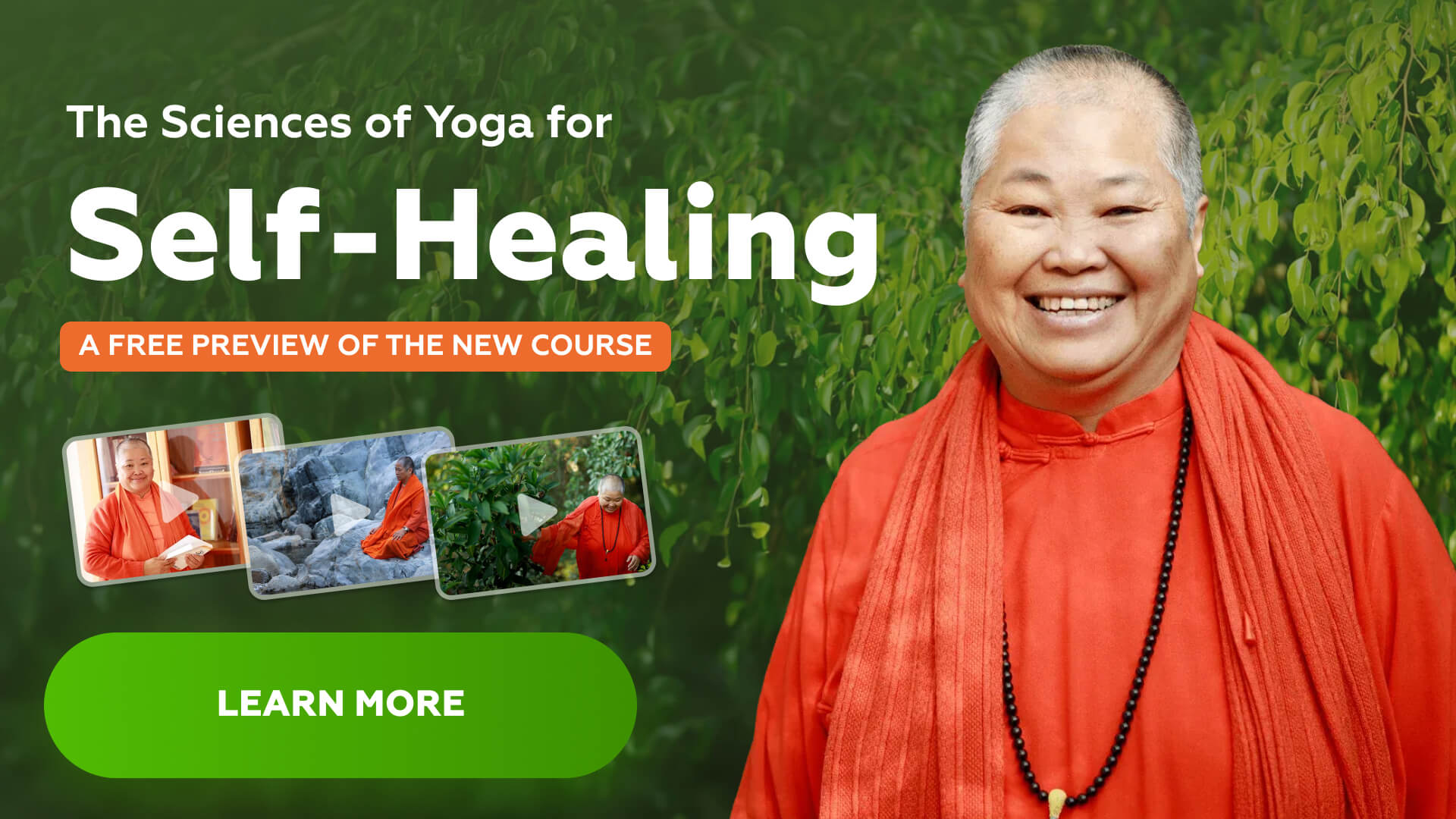In order to practice Bhakti Yoga in Daily Life we should learning to See God Through Our Relationships with others. There are many different types of relationship and in fact, life is nothing but relationship. Nothing is independent. If we think we are independent we are creating problems for ourselves because we are in relationship at all times.
Learning from past relationships
The Yoga of Relationship teaches us to understand that we are in this constant and complex network of relationship and teaches us to learn from the emotional patterns that we usually follow within relationship. It is through our network of relationship that we learn and grow. People in relationship serve as mirrors to each other emotionally and in various ways, so that we may reach the core issue of what it means to live in relationship, which is the relationship with our own Self. In Yoga we aim to stop the cycle of recurring negative emotional patterns in our past relationships by looking within and by developing awareness about oneself. It is about being self-sufficient – not in an egoistic manner but in a spiritual manner.Finding self-love
We must find ourselves in order to have true relationship with others. The moment that we improve our level of self-love, our level of love for other people also improves. It is automatic. If we hate ourselves we will hate others too. If we are angry at ourselves we will be angry with other people. If we are disconnected from our Self, then we will also be disconnected from other people. So there is no point in projecting blame or in trying to correct things externally, we need to correct things internally. If we find that we are always losing ourselves in relationship, it is because we have lost connection with our inner Self. If we can constantly maintain that relationship with our Self, then we will have beautiful relationships externally.Ideal Relationships
In Yoga an ideal relationship is based on respect, devotion and self-sacrifice.- Respect means tuning our mind to the needs of the other person, and that we accept their uniqueness, no matter what we may think about them. It implies a non-judgmental attitude.
- Devotion is about seeing the other person as God; that means treating the person with pure, unreserved love and trust, and being ready to dedicate our time and effort to make them happy.
- Self-sacrifice in relationship implies that we are aware of the ego’s tendency to be selfish. We consciously offer up our own needs in order to serve others who we consider as God, because we understand that while we are serving him or her, we are, in reality, serving our own Self.
Reproducing Impressions of Past Relationships
Usually we reproduce relationships that we already know. Our minds already carry impressions of our past relationships. The way in which we view ourselves, and the way we view other people is seen through the prism of those impressions left by past relationships. The impressions created by the relationships with the mother and father are especially strong. That is because those relationships began when we were very young and only our subconscious or emotional, instinctive minds are operating, so the impressions made then are very deep and unquestionable. In Yoga, it is said that our karmas choose our mother and father in this life so that we can learn and grow. Yogis believe that we carry the joys and sufferings that come from past lives and from the subconscious minds of our family and ancestors. We carry these in our own lives and we reproduce them in our relationships. As an example, a person who grew up in a dysfunctional and very angry family will likely form a dysfunctional and angry family later on, unless he/she does a lot of conscious inner work to develop detachment and awareness of the pattern. So many patterns begin in childhood and then just get reproduced. Some other scenarios:- when you were young, you were loved or not loved, isolated or put down
- you were completely spoiled and told that everything you did was perfect, then you will keep reproducing these patterns. So the spoiled person will always blame something external. They think they are perfect because that is what they have been told all their lives.
Remedy for Problems in Relationship
Healing our relationships starts with self-love or Love of God. We have to start to love our true Self or love God. This means we go through the maze of the mind and emotions to sort out who we are from who we are not. We have to look at our beliefs and examine whether they are true or not. If we can discard the ideas about ourselves that are not true and understand the core value of what is true, we come to accept and love our true Self. In other words, we stop waiting for someone external to us to give us permission to love our Self. That is what we usually do and it typically leads to a chain of projections and reproduction of expectations that creates confusion and pain. In Bhakti Yoga, either we address the partner as a symbolic idealized God himself/herself (the “Ishta devata” concept of personal chosen form of God) or we cultivate our ideal relationship by seeing our own Self or God in our inter-relationship with the people in our lives. In either case, the same principles apply. The same Love shines. Either we see God in our Self or see God in Others, or a mixture of both. We are all knowingly or unknowingly on this journey towards true Unity, Pure Joy and Pure Bliss, finding the relationship with Love Itself. © Swami Sitaramananda 2018 No part of this article may be reproduced in any form without the written permission of the author.Yoga Teacher Training Course
Check out our 200-hour Yoga Alliance certified Yoga Teacher Training Courses offered twice a year in California, 3x in Vietnam, once in China and once in Japan.
Foundational Courses
Choose from upcoming courses for beginners and intermediate level students.
Yoga Vacation
Rejuvinate your body and mind. Experience and progress with daily Yoga classes. Learn the 12 basic asanas and pranayama. Enjoy daily meditation, chanting, and organic vegetarian meals.
Rejuvenate Your Being
A Yoga vacation is an ideal getaway to change perspective towards one’s life and become healthier, more relaxed and connected.





0 Comments